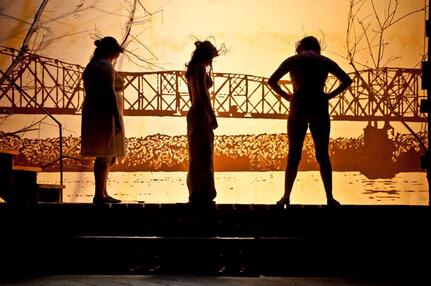|
So why "The Vagrancy?"
Vagrants have been historically characterized as outsiders, and often these outsiders were the artists of a particular community. In the UK in 1824, The Vagrancy Act 1824 was aimed to remove all undesirables from public view. In some East Asian and South Asian countries, the condition of vagrancy has long been historically associated with the religious life. So as Vagrants, we are a group of people who wander this city looking for artistic inspiration, connection and community. |
Mission StatementThe Vagrancy creates visceral work that seeks to touch the human spirit. We embrace fear, vulnerability, and embarrassment – inviting the audience to experience a communion. We hope to spark a dialogue of questions and compassion, exposing a shared universal truth. We forge new, lesser-known, and classical works with duende.
A 501c3, founded and led by women, non-binary and trans artists, The Vagrancy hires with primary attention to women, BIPOC, LGBTQIA and disabled artists. We hope to reach similarly diverse audiences by doing so. We commit especially to hiring directors who are women, non-binary or of the trans lived experience. What is 'duende'?
Duende is a response that is evoked when listening to music, dancing, or experiencing anything that is both soulful and visceral. It is a Spanish term, coined by Federico García Lorca in a lecture he gave in Buenos Aires in 1933. In reference to art, when one says something "tiene duende," it means that it has soul. This sensibility is often attributed to the style of magical realism. We want our work to have that ineffable, magical, poetic quality. |
Search by typing & pressing enter

